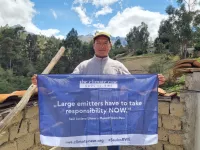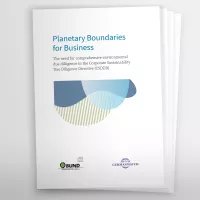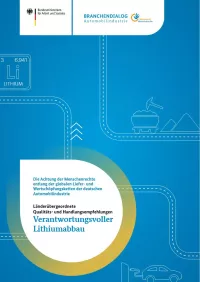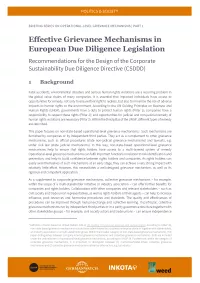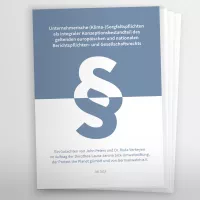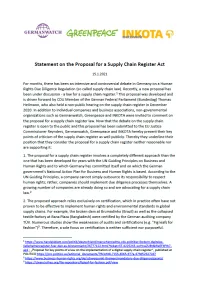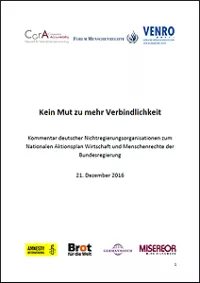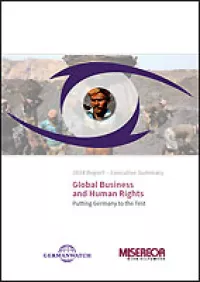Aktuelles zum Thema
Today, eight years ago, the Peruvian mountain guide and small farmer Saúl Luciano Lliuya filed his civil lawsuit against RWE at the regional court in Essen in Germany. What began back then has now become one of the world's most recognised precedents for the question of whether individual major emitters must pay for protection against climate risks.
In this brief, BUND and Germanwatch examine cases of environmental degradation in value chains of European companies, for example impacts of land use, pesticides, or gas and oil operations. We also provide analyses of how proposals for the EU Corporate Sustainability Due Diligence Directive cover these impacts and highlight the pivotal role of the European Parliament in this matter.
Lithium mining poses numerous environmental and human rights risks. As part of the Sector Dialogue Automotive Industry, Germanwatch therefore collaborated with stakeholders from industry and politics in the development of “cross-country recommendations for responsible lithium mining and recommended actions” in the “Lithium Project Group”. The paper identifies four risk areas and makes recommendations on how they can be addressed by the companies in the supply chain that mine and purchase lithium. Germanwatch supports the recommendations. However, we do see some key gaps in achieving a globally sustainable and equitable economy within planetary boundaries.
Fatal accidents, environmental disasters, and serious human rights abuses have occurred repeatedly in the global value chains of many companies. It is therefore imperative to ensure that those affected have the means to seek redress, thereby mitigating the risks associated with human rights violations and environmental degradation. One potential avenue for remedy is through non-state-based operational grievance mechanisms, which can exist either at the corporate level or as independent entities. This policy brief examines the role of operational grievance mechanisms in the ongoing negotiations of the EU Corporate Sustainability Due Diligence Directive (CSDDD).
The legal report points to existing corporate CO2 reduction obligations that are currently not sufficiently taken into account by many companies. It concludes that the increasing density of corporate reporting obligations in the area of so-called ESG risks (Environment, Social, Governance) already results in implicit climate-related duties of conduct for companies, which require preventive and science-based decision-making, including at management level. The report was commissioned by the Dorothea-Laura-Janina Sick Environmental Foundation, Germanwatch, and Protect the Planet, and is based on an analysis of legal developments in the areas of corporate law, directors’ duties, sustainability due diligence duties, as well as tort law.
For months, there has been an intensive and controversial debate in Germany on a Human Rights Due Diligence Regulation (so called supply chain law). Recently, a new proposal has been under discussion - a law for a supply chain register. Now that the debate on the supply chain register is public and this proposal has also been submitted to EU Justice Commissioner Reynders, Germanwatch, Greenpeace and INKOTA hereby publicly present their central points of criticism of the supply chain register.

